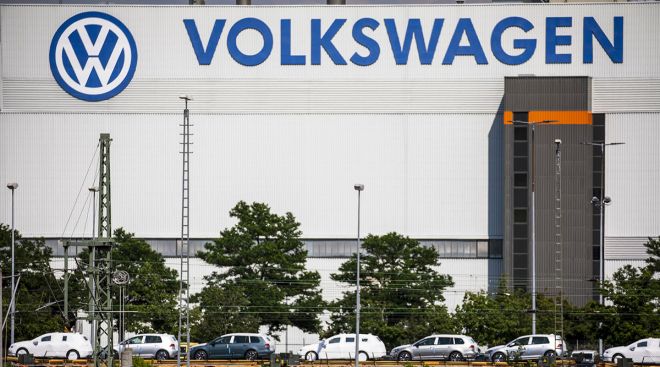Volkswagen Group: Billion-Dollar Secret: How a Brand Portfolio Fuels Work Revolution
The Volkswagen Group: Diversity, Profit, and the Future of Work
The Volkswagen Group indeed thrives on the success of its diverse portfolio of car brands, each catering to different segments and price points. Here's how they make money:
Direct Sales: The primary source of revenue is directly selling cars through their vast network of dealerships across the globe. Each brand contributes to the overall sales volume, with Volkswagen being the most mass-market, Audi focusing on luxury, Porsche on high-performance, and Škoda offering good value in emerging markets.
After-Sales Services: This includes parts and accessories sales, maintenance and repair services, extended warranties, and roadside assistance. These recurring revenue streams are crucial for long-term customer relationships and profitability.
Financial Services: Volkswagen Financial Services offers financing options for car purchases, leases, and insurance. This generates income from interest rates, commissions, and other fees associated with these financial products.
Licensing and Royalties: The Group owns intellectual property for various technologies and designs used across its brands. They license these technologies to other carmakers or generate royalties from their usage.
Commercial Vehicles: While passenger cars are the dominant segment, the Group also has a strong presence in commercial vehicles through brands like Volkswagen Commercial Vehicles, Scania, and MAN. These trucks, buses, and vans contribute to their overall revenue and market share.
Other Ventures: The Volkswagen Group invests in various research and development projects, technology startups, and mobility solutions like car-sharing services. These ventures can potentially become future revenue streams or enhance the overall value of the Group.
However, it's important to note that the automotive industry is cyclical and faces challenges like economic downturns, rising fuel costs, and increasing competition. The Group's profitability can fluctuate depending on these factors and their ability to adapt to changing market trends.
Despite these challenges, the Volkswagen Group's diverse brand portfolio, focus on innovation, and commitment to sustainable mobility position them well for continued success in the future.
Driving Forces Behind the Change:
Factors are contributing to Volkswagen Group's embrace of freelance and remote work:
1. Changing Workforce Preferences: The modern workforce increasingly prioritizes flexibility and autonomy. By offering remote and freelance options, Volkswagen Group attracts and retains top talent who seek to work on their own terms and achieve a better work-life balance.
2. Technological Advancements: The rise of collaborative tools and communication technologies has made it easier than ever to work effectively remotely. Volkswagen Group leverages these tools to ensure seamless collaboration and communication between its on-site and remote workforce.
3. Cost-Effectiveness: Hiring freelancers and remote workers can be cost-effective for Volkswagen Group, as it eliminates the need for additional office space and reduces overhead costs associated with traditional full-time employees.
4. Access to Global Talent Pool: By opening its doors to remote workers, Volkswagen Group expands its talent pool and gains access to a wider range of skills and expertise, regardless of location. This diversity fosters innovation and drives success.
Where Freelancing and Remote Work Tech:
Volkswagen Group freelance and remote work various departments, with some key areas showing growth:
1. Engineering and Design: Freelance engineers, designers, and data analysts are in high demand to support Volkswagen Group's cutting-edge projects in areas like electric vehicles, autonomous driving, and connected car technologies.
2. Marketing and Communications: Remote content creators, social media specialists, and digital marketing experts are crucial for Volkswagen Group's global branding and reaching new customer segments.
3. IT and Software Development: Freelance programmers, data scientists, and cloud computing specialists are essential for developing and maintaining Volkswagen Group's technological infrastructure and driving digital transformation.
4. Sales and Marketing: Remote sales representatives and marketing specialists can expand Volkswagen Group's reach and connect with customers in diverse geographic locations.
5. Finance and Accounting: Freelance accountants, analysts, and financial controllers provide valuable support to Volkswagen Group's financial operations, ensuring accuracy and efficiency.
Freelancers and Remote Workers:
Freelance and remote work offers path:
1. Flexibility and Autonomy: Set your own schedule, work from anywhere with an internet connection, and achieve a better work-life balance that suits your needs.
2. Diversification and Project Choice: Choose projects that align with your interests and expertise, constantly learn new skills, and expand your professional network.
3. Global Opportunities: Collaborate with a diverse team of professionals across the world, gain exposure to different cultures, and expand your knowledge base.
4. Reduced Costs and Increased Income Potential: Eliminate commuting expenses, set your rates according to your skills, and potentially earn more income compared to traditional full-time positions.
5. Improved Work-Life Balance: Gain more control over your time, prioritize personal commitments, and enjoy greater flexibility to manage your daily activities.
Advantagesin in Volkswagen Group:
Freelance and remote work, Volkswagen Group reaps several benefits:
1. Cost Savings: Reduce overhead costs associated with office space and traditional full-time employees.
2. Increased Talent Pool: Gain access to a wider range of skilled professionals and expertise, regardless of location.
3. Enhanced Innovation: Foster a diverse and creative work environment where innovation and collaboration flourish.
4. Improved Employee Satisfaction: Attract and retain top talent by offering flexible work arrangements that promote work-life balance.
5. Increased Sustainability: Reduce carbon footprint by minimizing commuting and promoting a more sustainable work model.
End of Conclusion:
The Volkswagen Group indeed thrives on the success of its diverse portfolio of car brands, Volkswagen Group's shift towards freelance and remote work represents a significant step towards a more flexible and adaptable future of work within the automotive industry. This approach offers numerous benefits for both the company and its workforce, paving the way for a more diverse, innovative, and sustainable work environment. As the demand for flexible work arrangements continues to grow, Volkswagen Group is positioned to attract and retain top talent, drive innovation, and achieve its ambitious goals in the global automotive market.
The automotive industry, exploring freelance and remote work opportunities at Volkswagen Group Motor Corporation presents an exciting and promising path.
Writer
Devraj Gorai


























